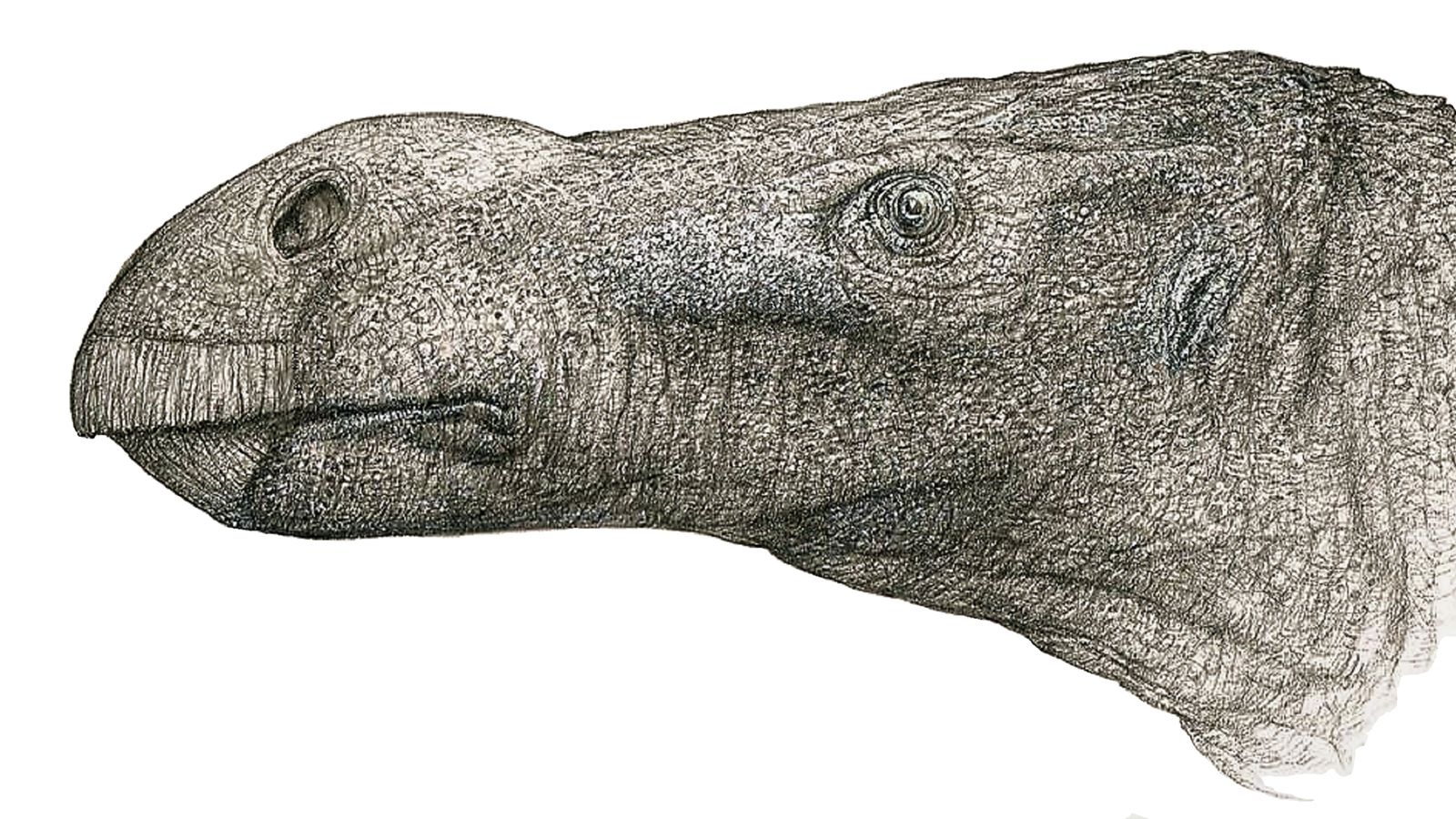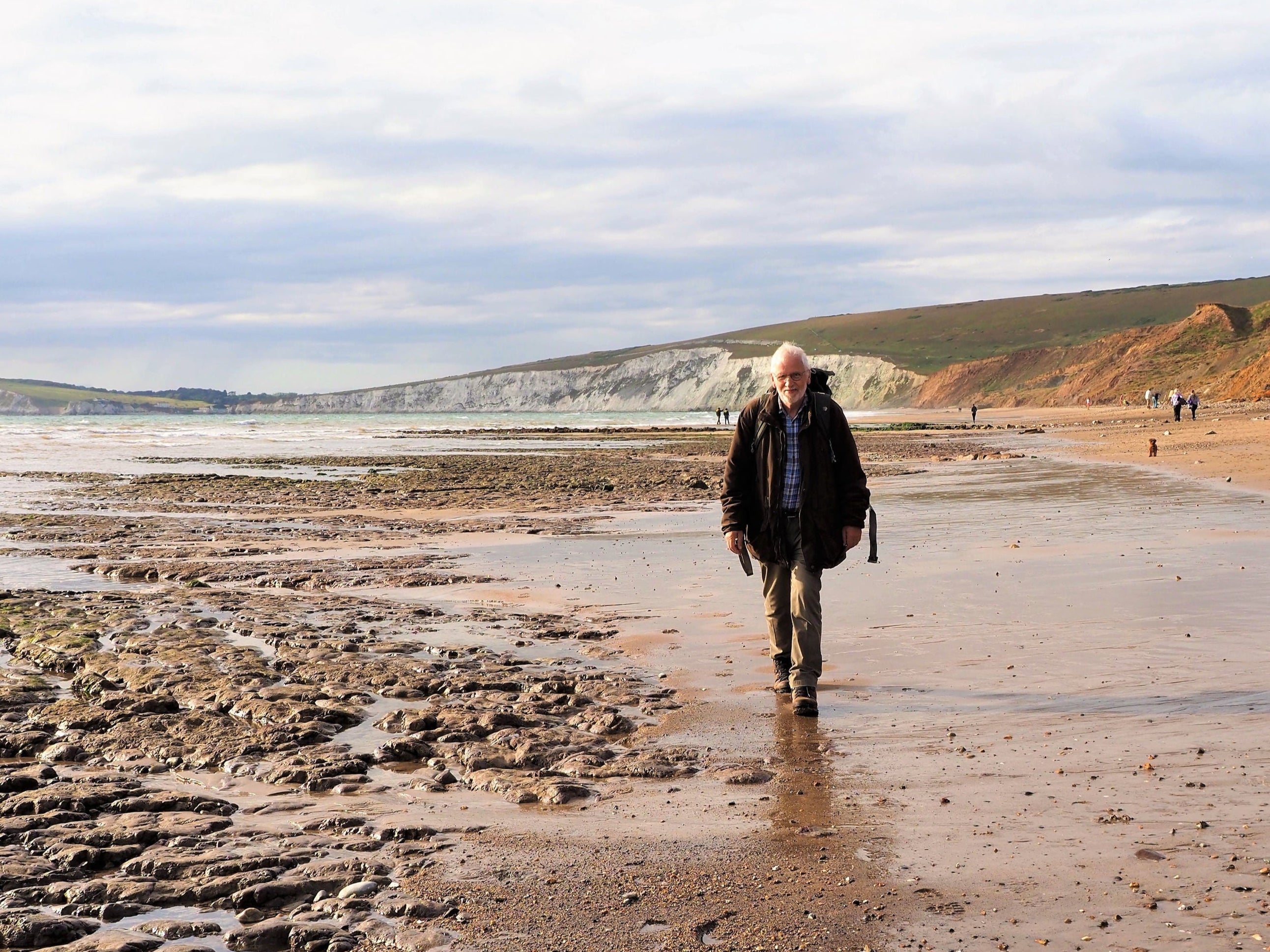Retired GP discovers new species of dinosaur from Isle of Wight with unusually ‘bulbous’ nose
Doctor of 30 years believes his find could spark a ‘renaissance’ of British dinosaur discoveries

Your support helps us to tell the story
From reproductive rights to climate change to Big Tech, The Independent is on the ground when the story is developing. Whether it's investigating the financials of Elon Musk's pro-Trump PAC or producing our latest documentary, 'The A Word', which shines a light on the American women fighting for reproductive rights, we know how important it is to parse out the facts from the messaging.
At such a critical moment in US history, we need reporters on the ground. Your donation allows us to keep sending journalists to speak to both sides of the story.
The Independent is trusted by Americans across the entire political spectrum. And unlike many other quality news outlets, we choose not to lock Americans out of our reporting and analysis with paywalls. We believe quality journalism should be available to everyone, paid for by those who can afford it.
Your support makes all the difference.Thanks in part to its uniquely “bulbous” nose, a new species of dinosaur, which once roamed the Isle of Wight has been discovered by a retired GP as he rummaged through old boxes of prehistoric bones during lockdown.
For the past century, any iguanodon bones discovered on the island – one of Europe’s richest areas for dinosaur fossils – have been assigned to either one of two species.
Despite these discoveries spanning a period of more millions of years during the Early Cretaceous period, all bones that were larger were assumed to belong to the iconic Iguanodon bernissartensis, while more slender fossils were assigned as belonging to Mantellisaurus atherfieldensis.
But Jeremy Lockwood, a doctor of 30 years, was sceptical of this longstanding tradition.
Now studying for a PhD in palaeontology at the University of Portsmouth, he decided to catalogue every Isle of Wight iguanodon bone held in London’s Natural History Museum and Sandown’s Dinosaur Isle Museum.
“I was convinced that subtle differences between bones would reveal a new species, so I set out to measure, photograph and study the anatomy of each bone,” Dr Lockwood said.
“My background is medicine, so I've studied anatomy and was always struck by the fact that the bones we find in humans all look exactly the same. I've seen dinosaur bones that are reportedly from the same species, but I've been baffled as to why they would look so different.”

After four years spent going through “boxes and boxes of bones”, he decided during last year’s coronavirus lockdown to reconstruct the skull of a specimen which had been in storage since 1978.
“To my astonishment I noticed the end of its nose was bulbous,” he said. “This discovery made it one of the happiest days of lockdown because it was a sign there really was something different about this particular dinosaur from the Isle of Wight.”
Combined with the fact that the specimen had 28 teeth, while Mantellisaurus typically have 23 or 24, this unique nasal trait and several other small differences “made it very obviously a new species”, Dr Lockwood said.
In a study published in the Journal of Systematic Palaeontology, Dr Lockwood has now named the new species Brighstoneous simmondsi – after the village of Brighstone, near to the excavation site, and in honour of amateur collector Keith Simmonds, who discovered the specimen in 1978.
In addition to the herbivorous Brighstoneous, which weighed 900kg and was around eight metres long, researchers just weeks ago announced the existence of two large and previously unknown dinosaur predators which also lived on the Isle of Wight.
Both of these meat-eaters were Spinosaurs – each as big as a school bus – and may have existed side-by-side during the Cretaceous period, at which point the island had a subtropical environment and was located roughly where Gibraltar is now.
Given the nature of his find, Dr Lockwood believes there could well be “many more” new discoveries still to come.
'We're looking at six, maybe seven million years of deposits, and I think the genus lengths have been overestimated in the past,” he said. “If that's the case on the island, we could be seeing many more new species. It seems so unlikely to just have two animals being exactly the same for millions of years without change.’
Dr Lockwood and his co-authors, Professor Dave Martill of the University of Portsmouth and Dr Susannah Maidment from the Natural History Museum, argue that the discovery calls for a further reassessment of previous finds from the Isle of Wight.
“British dinosaurs are certainly not something that's done and dusted at all,” Dr Lockwood said. “I think we could be on to a bit of a renaissance.”
Additional reporting by PA
Join our commenting forum
Join thought-provoking conversations, follow other Independent readers and see their replies
Comments